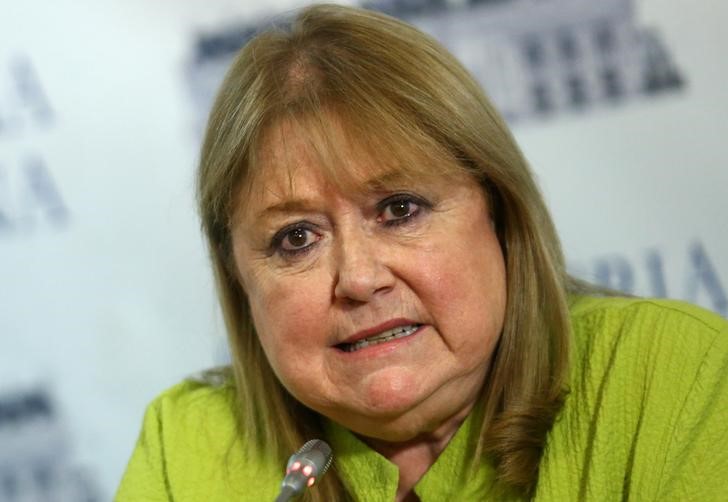BUENOS AIRES (Reuters) - Argentine Foreign Minister Susana Malcorra resigned on Monday and will move to Madrid to be closer to her family, President Mauricio Macri said.
Argentina's ambassador to France, Jorge Faurie, will be the new foreign minister and Malcorra will continue as an adviser to the government from afar.
"Our foreign minister is leaving us - not the team, but the role of foreign minister," Macri told reporters at a press conference. "She is leaving this crucial role for strictly personal reasons."
Faurie, a lawyer, has served as a diplomat for four decades and was briefly vice foreign minister in 2002, according to a resume sent by the government.
Malcorra, a businesswoman and diplomat who ran to be secretary general of the United Nations last year, led Macri's centre-right administration's efforts to boost diplomatic and trade ties with the United States and other Western countries after years of tense relations under former President Cristina Fernandez.
The shift has been part of a general move to the right among Latin American countries formerly friendly to Venezuela's socialist government, leaving President Nicolas Maduro increasingly isolated as violent protests shake the country.
Malcorra is the second minister to leave Macri's government since he took office in December 2015, following former Finance Minister Alfonso Prat-Gay, who was asked to resign late last year.
Under Malcorra, Argentina has taken a particularly harsh line toward Venezuela, accusing Maduro of violating democratic norms. Argentina and other members of regional trade bloc Mercosur suspended Venezuela from the group last year, and Malcorra has supported a push by the Organization of American States to increase pressure on Maduro.
"We will continue to have the same position [on Venezuela] we have had up until now," Malcorra said at the press conference, calling on Venezuela to set a clear timeline for holding elections, implement a separation of powers and free political prisoners.
Faurie will also inherit an ambitious but slow-moving effort to sign a trade deal between Mercosur and the European Union, as well as an escalating trade dispute with the United States over the importation of biodiesel, a key Argentine export.
